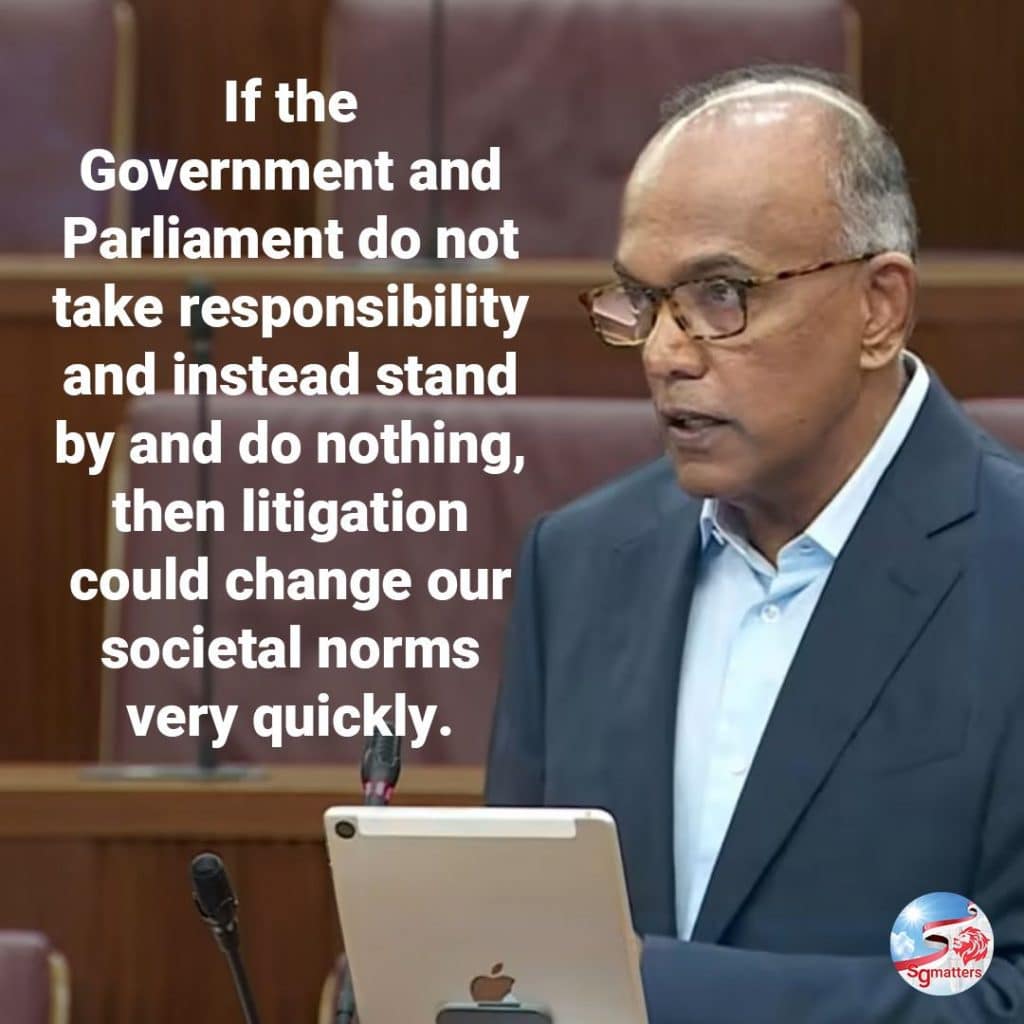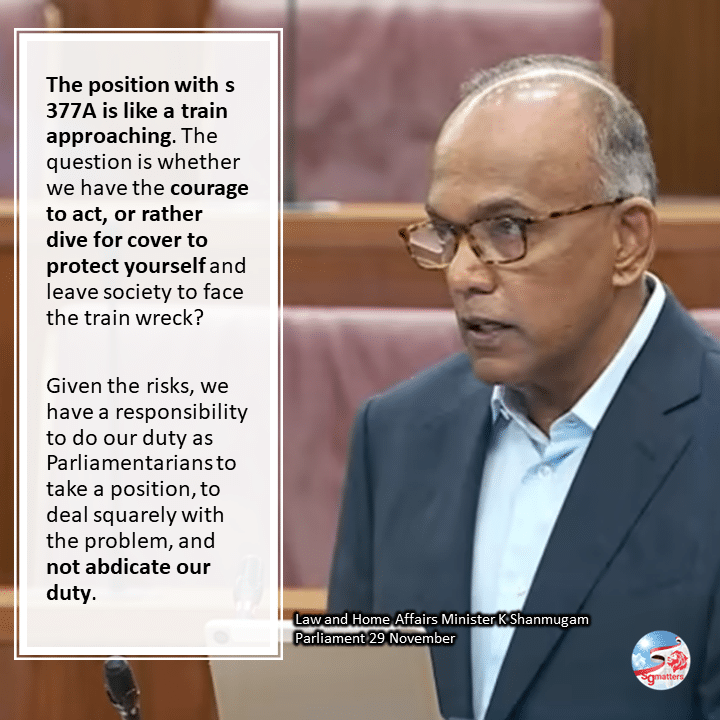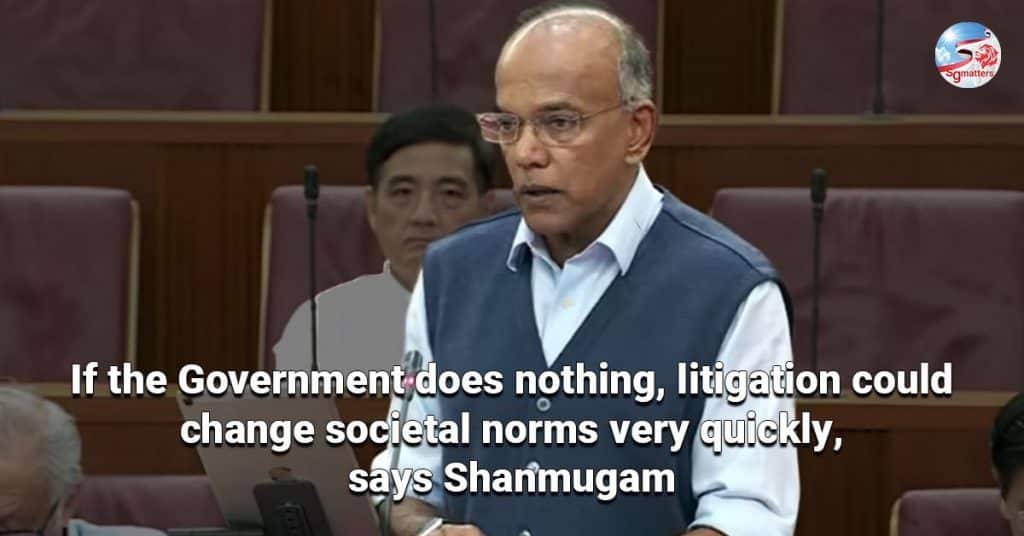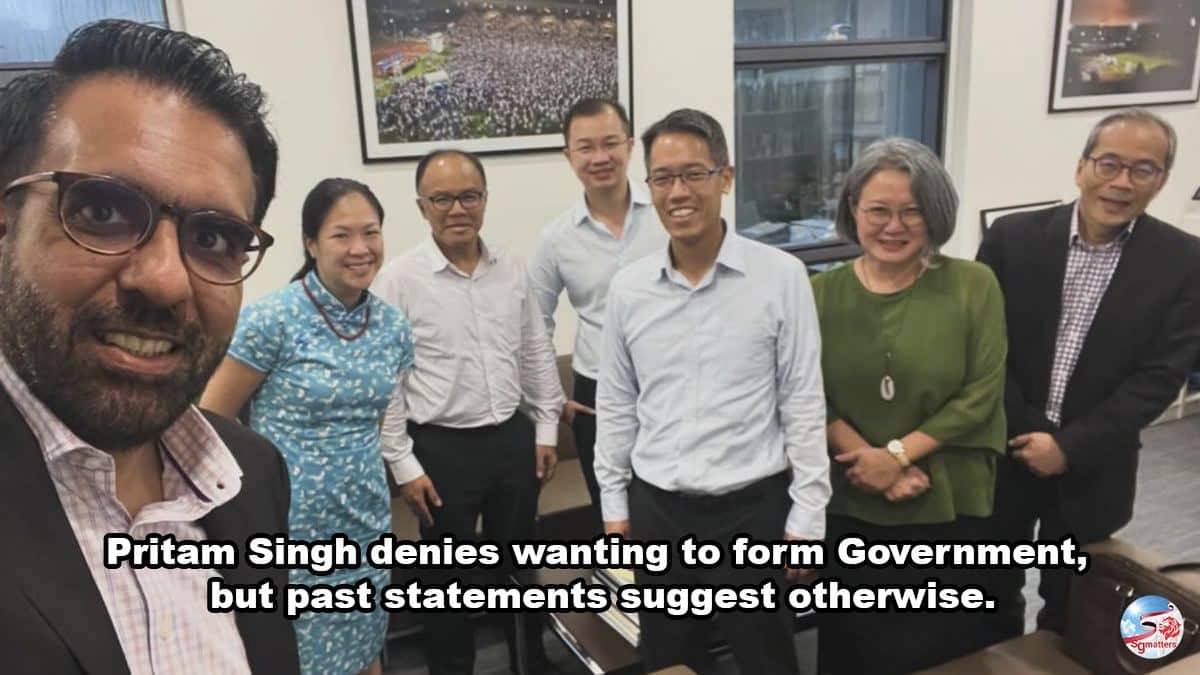We should not assume that the Courts will never strike s 377A down just because the Government chooses to retain it, Law and Home Affairs Minister K Shanmugam said in Parliament.
Politically expedient to leave it to the Courts
It would be easier for the Government to leave it to the Court as this is the path of least resistance and the Government would bear no blame.
Mr Shanmugam said, “If we approached this purely as politicians, concerned only with votes and not making anyone unhappy, or making as few people unhappy as possible, then that route of leaving it to the Courts would have been easier – pretend that these issues do not exist, need not have been talked about after the CA decision in Tan Seng Kee, leave it to the Courts.”
Lessons from India
Mr Shanmugam described at length what happened in India to draw lessons from the India experience.
Consequences of leaving it to the Courts
Court processes, Mr Shanmugam said, are adversarial by nature. Either you win or you lose. There is no middle ground, no balancing of competing interests.
Parliament is better suited to resolve difficult societal issues
Open-ended resolutions are possible, instead of binary, win-lose outcomes, he added.
“Parliament has a duty to deal squarely with laws which are unconstitutional. If Parliament abdicates its duty and does not do what it has to do, then the Courts may have to do what they don’t want to do.,” said Mr Shanmugam.
Singapore's interests
“If the Government and Parliament do not take responsibility and instead stand by and do nothing, then litigation could change our societal norms very quickly.”

2 reasons to repeal 377A
We should do so because there are no public order issues that are raised from such conduct, so it should not remain criminal.
What will remain criminalised, even if Section 377A is repealed is non-consensual sexual assault by males against other males. This remains a serious offence. Sexual acts committed by males against young persons remain a serious offence regardless of consent. Sexual acts between two males committed in public that offends public decency will remain an offence.
To those who feel that even though there are no public order issues, there are other reasons for keeping the law, Minister Shanmugam asked them to consider the second reason – the legal consequences.
This second reason is not a matter of conscience. It is a policy question. “It requires each of us to think carefully, and apply our minds,” he said.
It is a matter of considering the consequences for Singapore, given that there is a clear legal risk that Section 377A could be struck down.
We must think carefully and apply our minds to the consequential legal risks to the heterosexual family, housing, education and various other policies.
Knowing all these risks and refusing to take a position or be clear in how we will deal with it, is avoiding our responsibilities as MPs... It is easier politically, but it is also worse for Singapore and Singaporeans. To put it bluntly, that will be an abdication of duty. And it would be cynical if we, as MPs, did that. Because we would be putting political capital over doing what is good for Singaporeans.
Minister K Shanmugam






